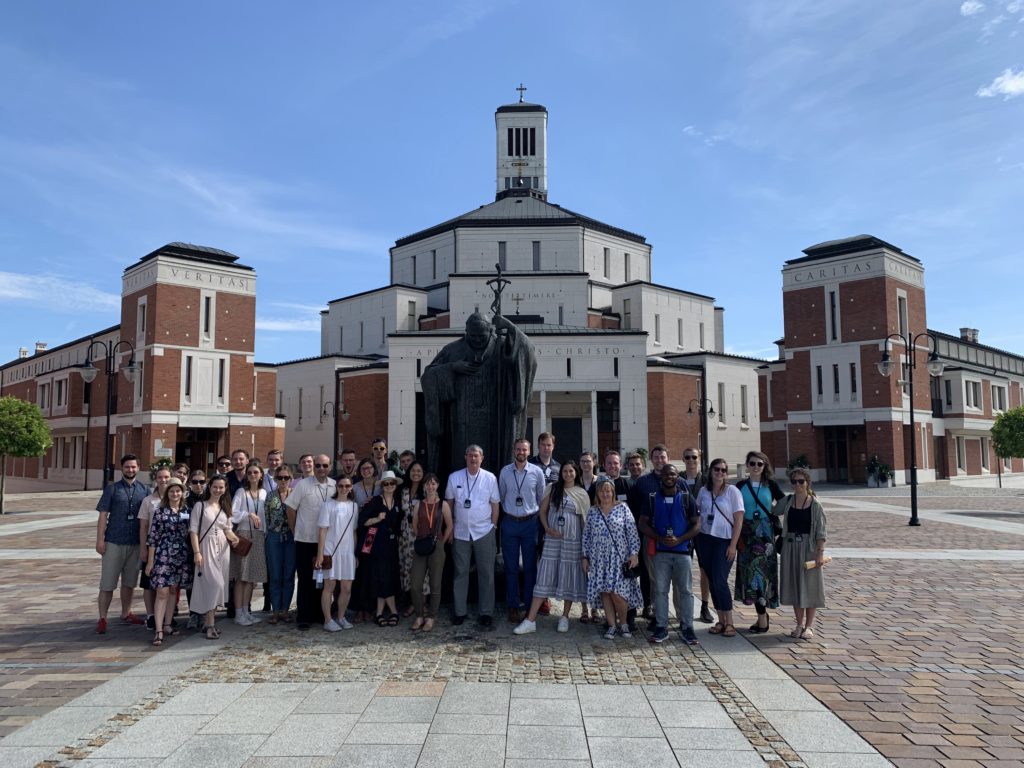
The Tertio Millennio Seminar
Kraków, Poland
July 1st–19th 2024
APPLICATIONS FOR THE 2024 Tertio Millennio Seminar are now closed.
Please revisit this webpage in January 2025 for information on applying for 2025.
The Tertio Millennio Seminar on the Free Society was founded in 1992 by Michael Novak, Rocco Buttiglione, Father Richard John Neuhaus, Father Maciej Zieba, OP, and George Weigel to deepen the dialogue on Catholic social doctrine between North American students and students from the new democracies of central and eastern Europe.
The annual seminar in Kraków, Poland, is built around an intense study of John Paul II’s 1991 encyclical Centesimus Annus, supplemented by wider readings from the Church’s social magisterium and contemporary essays on relevant topics. Following the lead of Centesimus Annus, the seminar explores the “free society” as composed of three interlocking systems: a democratic polity, a free economy, and a vibrant public moral-culture. With Pope John Paul II, we lay the greatest stress on the third system, the moral-cultural system, taking up such issues as religious freedom, ecumenism, Christian-Jewish dialogue, and the “culture of life.”
Each year’s seminar class includes 10–12 North American students and 20–25 students from Poland, the Czech Republic, Slovakia, Hungary, Lithuania, Ukraine, and other new democracies. While the North American contingent has normally been composed of graduate students and young professionals, accomplished juniors and seniors working on bachelor’s degrees relevant to the purposes of the seminar may also apply. The program is conducted in English.
For information on how to apply for the 2024 Tertio Millennio Seminar on the Free Society, click here. The seminar will be held from July 1st–19th 2024.




